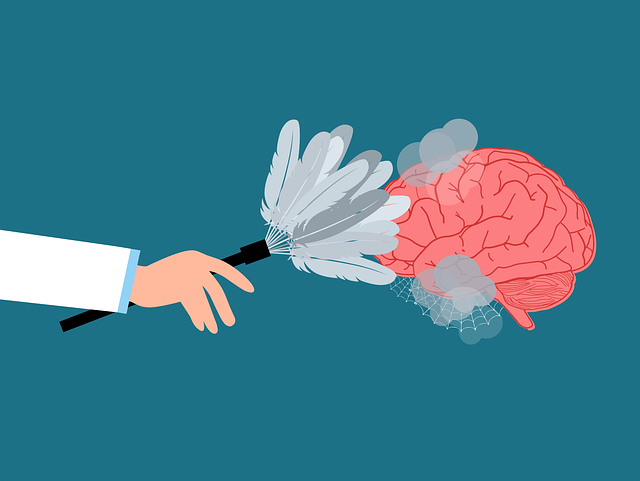At Centennial Learning Disability Therapy, effective care delivery hinges on comprehensive risk management planning that involves identifying and mitigating emotional risks from past traumas, fostering self-care routines for therapists, and implementing dynamic client-centric approaches. This holistic strategy integrates mental health policy analysis, Emotional Well-being Promotion Techniques, crisis protocols, and professional boundaries to enhance confidentiality, trust, and informed decision-making. Through continuous learning, peer reviews, and Mental Wellness Journaling Exercise Guidance, the therapy setting promotes mental health awareness, advocacy, and positive client outcomes while supporting therapists' resilience.
“Mental health professionals, like those at Centennial Learning Disability Therapy, operate in an environment fraught with unique risks. This article guides practitioners through meticulous risk management planning, a cornerstone of safe and effective care. We explore key areas such as understanding the nuances of risk in mental health practice, identifying hazards specific to Centennial’s context, and developing robust strategies. By implementing these steps, professionals can enhance patient safety, mitigate liabilities, and foster a culture of continuous improvement at organizations like Centennial Learning Disability Therapy.”
- Understanding Risk in Mental Health Practice
- Identifying Potential Hazards at Centennial Learning Disability Therapy
- Developing a Comprehensive Risk Management Plan
- Implementation and Continuous Improvement Strategies
Understanding Risk in Mental Health Practice

In the realm of mental health therapy, understanding risk is a cornerstone of effective practice. Professionals like Centennial Learning Disability Therapists must recognize that every client presents with unique challenges and potential triggers that can impact their well-being and treatment outcomes. Risk assessment goes beyond identifying vulnerabilities; it involves a nuanced comprehension of how these factors might interact and influence a client’s mental health trajectory. By integrating mental health policy analysis and advocacy into their planning, therapists can proactively mitigate risks while fostering an environment that promotes healing and growth.
The process begins with thorough self-awareness exercises, where therapists reflect on their own biases and emotional responses to better support clients. This introspection is crucial because therapist well-being directly impacts the quality of care provided. Through continuous learning and self-care practices, mental health professionals can navigate complex situations with resilience, ensuring they are equipped to handle risks that may arise during therapy sessions. Such proactive measures contribute to a more holistic approach in addressing clients’ needs, ultimately enhancing mental health awareness and advocacy within the therapeutic setting.
Identifying Potential Hazards at Centennial Learning Disability Therapy

At Centennial Learning Disability Therapy, identifying potential hazards is a cornerstone of comprehensive risk management planning. This process involves meticulously scrutinizing various aspects of the therapeutic environment and practice to ensure the safety and well-being of both clients and professionals. A key area of focus includes recognizing and mitigating risks associated with intense emotional situations that may arise during therapy sessions. Therapists must be prepared for potential triggers related to past traumas, enabling them to provide immediate Trauma Support Services when necessary.
Effective risk management also entails fostering a culture of Self-Care Routine Development for Better Mental Health among the therapy team. This involves implementing strategies to manage stress and maintain work-life balance. By prioritizing their own mental health, therapists can enhance their ability to support clients effectively while minimizing the risks of burnout and compassion fatigue. Such proactive measures contribute to creating a secure and supportive atmosphere at Centennial Learning Disability Therapy, where both clients and therapists can thrive.
Developing a Comprehensive Risk Management Plan

Developing a comprehensive risk management plan is an essential component of effective practice for mental health professionals, particularly within the context of Centennial Learning Disability Therapy. This proactive approach ensures that therapists are well-equipped to navigate and mitigate potential risks, fostering a safe and supportive environment for both clients and practitioners. The plan should be tailored to address specific challenges inherent in this field, such as managing complex emotional scenarios and promoting the emotional well-being of both parties.
By integrating Emotional Well-being Promotion Techniques, therapists can create a robust framework that considers various risk factors. This involves regular risk assessments, crisis management protocols, and strategies for maintaining professional boundaries. A well-structured plan enables mental health professionals to handle sensitive issues, ensure client confidentiality, and foster an atmosphere of trust. It empowers them to make informed decisions, adapt therapy approaches, and provide the highest level of care, ultimately enhancing the effectiveness of Centennial Learning Disability Therapy.
Implementation and Continuous Improvement Strategies

Effective risk management planning for mental health professionals involves a dynamic approach where implementation strategies are tailored to the unique needs of Centennial Learning Disability Therapy practices. A key strategy is integrating Mental Wellness Journaling Exercise Guidance into routine therapy sessions, empowering clients to actively engage in self-reflection and tracking their progress. This not only enhances Positive Thinking but also provides valuable data for professionals to assess treatment effectiveness and identify areas for improvement.
Continuous improvement is fostered through regular peer reviews, where therapists share experiences, challenges, and successful strategies. By adopting a culture of open communication, practices can ensure that their risk management protocols remain relevant and adaptable to evolving mental health landscapes. This iterative process includes collecting client feedback, analyzing treatment outcomes, and incorporating evidence-based Anxiety Relief techniques into the therapeutic arsenal, ultimately driving better patient outcomes and enhanced professional resilience.
Mental health professionals, like those at Centennial Learning Disability Therapy, must prioritize risk management planning to ensure safe and effective practice. By understanding the unique risks inherent in their work, identifying potential hazards, and developing robust strategies, they can mitigate challenges and enhance patient outcomes. Implementing a comprehensive risk management plan, coupled with continuous improvement, allows professionals to adapt to evolving circumstances and create a secure environment for both clients and practitioners. This proactive approach is essential for maintaining high standards of care within the dynamic field of mental health therapy.














